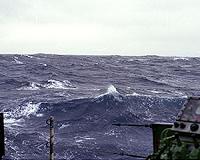| . |  |
. |
Brisbane, Australia (SPX) Dec 10, 2010 In a world first, a new 'state of the art' climate change experimental facility has been completed at the University of Queensland's Heron Island Research Station. The Climate Change Mesocosm (CCM) project led by Associate Professor Sophie Dove and Dr. David Kline from the Global Change Institute's Coral Reef Ecosystems Laboratory is one of the largest and most accurately controlled ocean acidification and warming experimental systems in the world and simulates ocean temperatures and acidification levels predicted to occur on coral reefs in the next 50 to 100 years. Able to regulate both temperature and CO2 levels prescribed by the 2100 IPCC scenarios in a highly controlled environment, the CCM system allows studies of climate change from the molecular to the ecosystem level. "While similar to the "Free Ocean Carbon Enrichment" (FOCE) project, recently featured in Sir David Attenborough's documentary "Death of the Oceans", the CCM differs in that it regulates the temperature, in addition to, the acidification levels above and below the current ambient conditions of water on the reef" said Dr Dove. It is unique in so far as the experimental controls allow variation with respect to real-time conditions of CO2 and temperature measured in the adjacent deepwater of Wistari channel." Conditions in the 72 experimental aquaria and 12 mini-reefs can then fluctuate a fixed amount above or below the ambient 'control' conditions, but importantly incorporate a day/night and seasonal variability." The main components of the system are 4 x 7,500L custom built air-tight and insulated fibre-glass tanks or sumps which provide the necessary residence time of the water for the fine control of CO2 and temperature. Dr David Kline a research fellow with the GCI explains "We are simulating preindustrial ocean conditions of -100 ppm CO2 and minus 1 degrees C; a control treatment of current reef CO2 and temperature; the "B1" IPCC scenario of + 220ppm CO2 and +2 degrees C, and an extreme "A1FI" scenario of +640 ppm CO2, +4.5 degrees C." "In the eight months the FOCE system has been on the reef flat we have noticed the corals exposed to the higher CO2 levels look quite different. The types of algae are different and the growth rate of the coral appears to have slowed. We expect to see similar results from the CCM experiments where reefal organisms respond to the dual influences of acidification and temperature."
Share This Article With Planet Earth
Related Links Global Change Institute Water News - Science, Technology and Politics
 Measuring Air-Sea Exchange Of Carbon Dioxide In The Open Ocean
Measuring Air-Sea Exchange Of Carbon Dioxide In The Open OceanLondon, UK (SPX) Dec 09, 2010 A team led by scientists at the National Oceanography Centre have measured the air-sea exchange of carbon dioxide in the open ocean at higher wind speed then anyone else has ever managed. Their findings are important for understanding how interactions between the oceans and the atmosphere influence climate "Evaluating the factors influencing the transfer of gases such as carbon dioxide bet ... read more |
|
| The content herein, unless otherwise known to be public domain, are Copyright 1995-2010 - SpaceDaily. AFP and UPI Wire Stories are copyright Agence France-Presse and United Press International. ESA Portal Reports are copyright European Space Agency. All NASA sourced material is public domain. Additional copyrights may apply in whole or part to other bona fide parties. Advertising does not imply endorsement,agreement or approval of any opinions, statements or information provided by SpaceDaily on any Web page published or hosted by SpaceDaily. Privacy Statement |